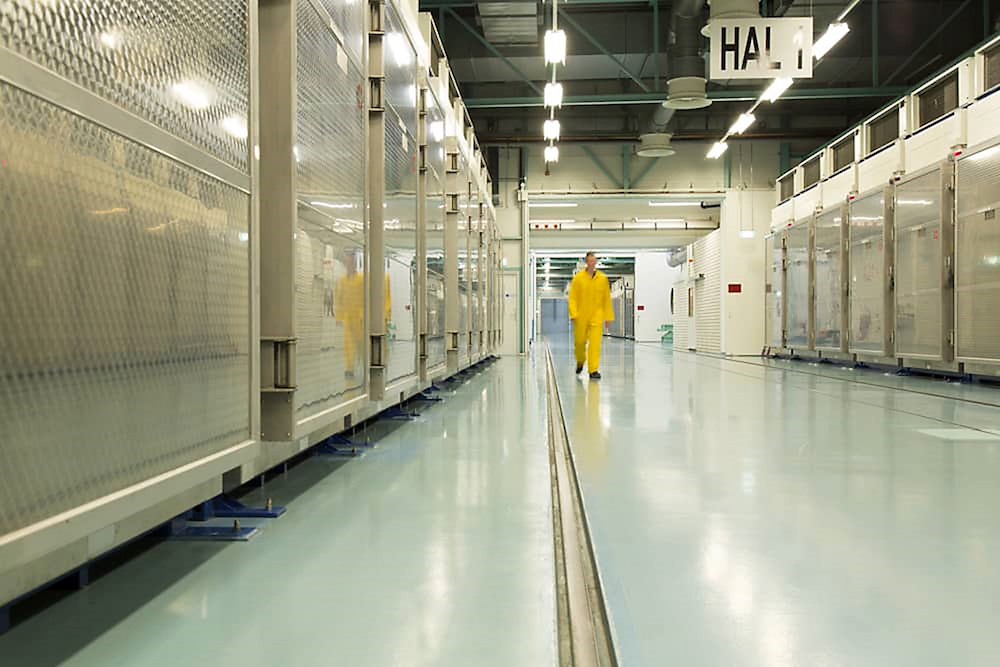Iran misjudging Biden’s Middle East policy
https://arab.news/6pevu

Tensions are brewing between Washington and Tehran like never before as Donald Trump’s presidency winds down, with less than three weeks to go before Joe Biden is sworn in. The US has warned Iran against carrying out attacks against its troops and interests in the region as Iran and its proxies mark the first anniversary of the assassination of top general Qassem Soleimani near Baghdad airport.
On Sunday, Acting Secretary of Defense Christopher Miller instructed the USS Nimitz to remain in the Gulf in reaction to Iranian threats. That order came just days after the US dispatched additional B-52 strategic bombers to the region as a warning to Tehran. And, on Saturday, Iranian Foreign Minister Javad Zarif said Tehran had “new intelligence” from Iraqi sources indicating that “Israeli agent provocateurs” were staging attacks on US targets, laying a “trap” for President Trump to start a conflict that could damage Biden’s plans to salvage the 2015 nuclear accord.
While Iranian leaders had threatened to avenge the death of Soleimani, it is inconceivable they would risk provoking the Trump administration a few weeks before Biden’s inauguration. Iraq fears that rogue pro-Iran militias could launch an attack on the US Embassy in Baghdad or military bases where US soldiers are deployed. The Iraqi government has increased security around the Green Zone and sent messages to Tehran asking it to keep its proxies under control.
Restraint and patience are now Tehran’s key strategies, although the possibility of an incident taking place where US interests are threatened remains high. Even more worrying is Iran’s decision to increase its uranium enrichment capacity to 20 percent purity. The International Atomic Energy Agency confirmed that Iran had begun this process at its underground Fordow nuclear site on Monday, in violation of the 2015 nuclear deal. Tehran initially resumed enrichment following Trump’s 2018 decision to withdraw from the deal, but at a low 4.5 percent rate. This latest move is believed to be aimed at putting pressure on the Europeans and the incoming Biden administration to prioritize re-engagement on the nuclear deal. Tehran hopes that the new administration will rejoin the deal and lift biting US economic sanctions. But that would be a gross miscalculation.
While Trump’s actions against Tehran have failed to pressure it into negotiating a new deal, they have underlined the need to review Iran’s medium and long-range missile program, as well as its meddling in the internal affairs of neighboring countries. Much has changed since 2015 and it would be wrong to assume that Biden would rejoin the nuclear agreement unconditionally. He would have the support of key European partners, like France, in seeking to expand the scope of the agreement. Iranian President Hassan Rouhani and Zarif have repeatedly rejected any suggestions of negotiating a new deal.
While Israel continues to reject the nuclear agreement and is seeking to ban Iran from any nuclear activity, the reality is that Tehran’s nuclear program needs to be checked and restrained. But that is only one side of the region’s problem with Tehran. Iran has supplied its proxies in Lebanon, Syria and Yemen with missile capabilities. It has also been directly accused of carrying out missile attacks against targets in Saudi Arabia. Its missile program is a strategic threat to the region’s security and stability.
Much has changed since 2015 and it would be wrong to assume that Biden would rejoin the nuclear agreement unconditionally.
Osama Al-Sharif
In the midst of the threats being exchanged this week, the commander of the Islamic Revolutionary Guard Corps Aerospace Force stated that Supreme Leader Ali Khamenei had given the green light for Tehran-backed proxies in Lebanon and Gaza to “level” two of Israel’s three largest cities. “All the missile capabilities of Gaza and Lebanon have been supported by Iran, and they are the front line for confrontation,” said Amir-Ali Hajizadeh. This irresponsible statement has angered the Lebanese public and deepened the chasm between Lebanon’s key political players and Hezbollah. So brazen was the statement that it prompted Hezbollah leader Hassan Nasrallah to declare that Iran “doesn’t need help” from its allies and will take revenge “when it decides so.” He added that Tehran will not ask any other country or body to conduct a retaliatory strike on its behalf.
Iran cannot expect to have the sanctions lifted and be treated like a normal country when it is creating havoc in Iraq, meddling in the internal affairs of Lebanon and Syria, and backing a terror group in Yemen. The nuclear deal is only part of a bigger problem that the region has with a belligerent Iran. Any new agreement must check Iran’s missile capabilities as well as restrain its proxies across the region. Biden must listen to America’s allies and send a stern message to Iran’s leaders that they will not be rewarded for their disruptive policies.
- Osama Al-Sharif is a journalist and political commentator based in Amman. Twitter: @plato010








































